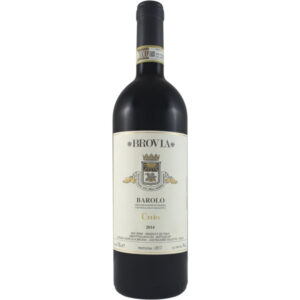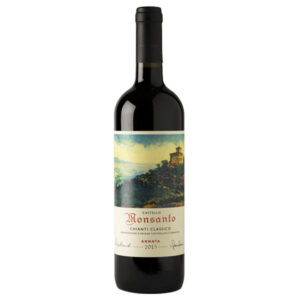Brovia BROVIA Barolo Rocche di Castiglione 2019
125,00 €
Characteristics
Description
The Brovia Rocche di Castiglione 2019 is a Barolo with a very feminine and seductive side. Always the most aromatic and elegant of raw meats, this historic company from Castiglion Falletto has the delicacy of a ballerina with sweet and silky tannins.
The unique qualities of this “cru” derive from the composition of the sandy soil which is in stark contrast to the soil underlying the neighboring “crus” of Castiglione Falletto. The parcel owned by Brovia (1.5 hectares) faces south-east and is located at 350 meters above sea level. The vines were planted in 1966. The wine ferments for at least 3 weeks and is then racked into large French oak barrels for an aging period of no less than two years before being bottled (unfiltered). The annual production is in the order of 5500 bottles
In 1863 Giacinto Brovia founded the company of the same name in Castiglione Falletto, in the heart of the Barolo region. The family has since been engaged in grape cultivation and wine production.
From generation to generation, the Brovia family has been conscientious buyers of some of the finest vineyards in this noble land, focusing their efforts in Castiglione Falletto and nearby Serralunga d’Alba. Brovia owns lands in a variety of the best “cru” sites in Piedmont, such as Rocche, Villero, and Garblét Sue, all in Castiglione Falletto, as well as Brea in Serralunga.
These different crus differ in terms of soil type, ranging from heavier clay to friable limestone. The Brovia family are extremely conscientious viticulturists and practice organic farming (although not formally certified). They conduct soil analysis every two years to ensure proper balance of elements, and pruning is done to limit crop yields. Harvesting is entirely done by hand and usually begins in late September with Dolcetto, Arneis, and Barbera; naturally, Nebbiolo ripens later, and the harvest for the various Barolos typically takes place in mid-October.
Brovia wines are vinified in a classic style. The grapes are lightly pressed before entering the fermentation tanks. The duration of the fermentation period depends on the grape variety, for Nebbiolo from Barolo extending up to a month or more at temperatures between 28 and 30 degrees Celsius. The Barolos are aged for at least two years in 30 hectoliter Slavonian and French oak barrels. The wines are then bottled without filtration and placed on the market after a further 18-24 months of bottle aging
Today, the Brovia estate spans 19.2 hectares, with 55% of the production dedicated to Barolo, 25% to Dolcetto, 10% to Barbera, and the remaining 10% produced from Arneis, Nebbiolo d’Alba, and Freisa grapes.
Additional information
| Weight | 1,5 kg |
|---|---|
| Alcohol | 14% |
| Denomination | Barolo |
| Formato | 0,75 L |
| Località | Castiglion Falletto |
| Producer | |
| Regione | Piemonte |
| Porciatti label | |
| Special categories | |
| Tipologia | Rosso |
| Vitigni | Nebbiolo |











